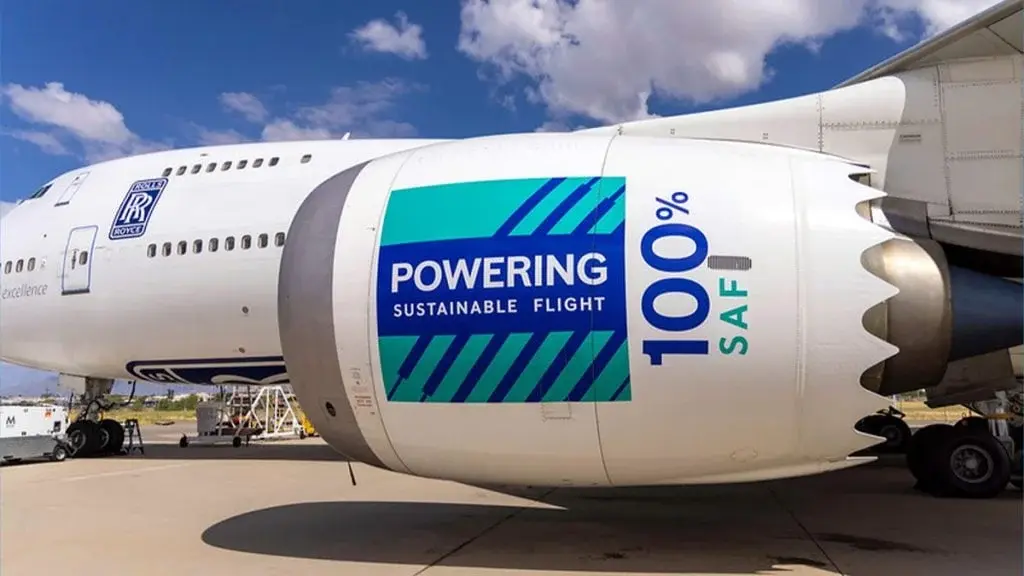Rolls-Royce Confirms Compatibility of Engines with Sustainable Aviation Fuel
Efforts to reduce reliance on fossil fuels have been ongoing for years, and the aviation industry is no exception. As electric vehicle technology gains momentum in the automotive sector, the aviation industry is still heavily dependent on traditional jet fuel. However, Rolls-Royce is taking a step towards a more sustainable future by exploring the use of Sustainable Aviation Fuel (SAF) as an alternative to traditional jet fuel.
The Rise of Sustainable Aviation Fuel
Sustainable Aviation Fuel is derived from renewable sources such as waste oils, vegetable oils, and algae. It is considered a promising alternative due to its potential to reduce carbon emissions and its compatibility with existing aircraft engines.
Rolls-Royce has been testing the use of SAF blended with jet fuel to address concerns about efficiency. However, the company has recently made an exciting announcement – all of its current engines are capable of running on 100% SAF.
Successful Tests at Rolls-Royce's Facility
Rolls-Royce conducted a series of tests at its facility in Canada using various aircraft engines, including the Trent 700, 800, 900, 1000, XWB-84, XWB-97, 7000, BR725, and Pearl 700, 15, and 10X. The tests were concluded successfully, demonstrating that these engines can operate efficiently using 100% sustainable aviation fuel.
Tufan Erginbilgiç, the CEO of Rolls-Royce, expressed his confidence in this alternative fuel, stating, "Announcing that all our currently produced engines are compatible with 100% SAF is a significant step for both Rolls-Royce and the general aviation industry. This is also strong evidence of our commitment to achieving net-zero emissions by 2050 and supporting customers in reaching this goal."
A Sustainable Future for Aviation?
While the compatibility of Rolls-Royce engines with 100% SAF is a milestone in the industry, it remains uncertain whether Sustainable Aviation Fuel will become the standard in aviation. The rise of electric aircraft engines may present viable alternatives in the future. As technology continues to advance, electric flying cars and electric aircraft engines may become more feasible options for reducing carbon emissions in air travel.
In conclusion, Rolls-Royce's exploration of Sustainable Aviation Fuel is a significant step towards a more sustainable future for the aviation industry. By confirming the compatibility of its current engines with 100% SAF, Rolls-Royce is demonstrating its commitment to reducing the environmental impact of air travel and supporting the goal of achieving net-zero emissions. While the future of aviation fuel remains uncertain, the progress made in sustainable alternatives is undoubtedly promising.


Leave a Reply